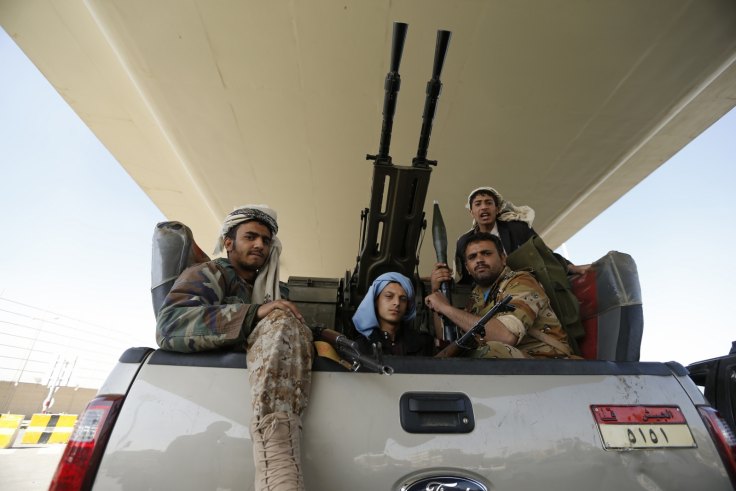Shiite rebels in control of Yemen’s capital now hold the country’s president “captive” at his home, his aides said Wednesday, putting in question who actually rules the Arab world’s most-impoverished nation. President Abed Rabbo Mansour Hadi “cannot leave his house” after Houthi rebels removed his guards and deployed their own fighters there Wednesday, one aide said.
Another described the country being at the “point of no return.” Hadi can’t resign as president as the Houthis have threatened to prosecute him, that aide said. The two aides spoke on condition of anonymity as they weren’t authorized to speak to journalists.
The embattled Hadi – a top U.S. ally in the war against al-Qaida in Yemen – appears to have run out of options to continue governing the country, months after the Houthis began a blitz across the country in September. It also raises the danger of al-Qaida in Yemen, which claimed the recent attack on the French satirical newspaper Charlie Hebdo and failed assaults on the U.S. homeland, could grow more powerful in the chaos.
Advisers said Wednesday that Houthis issued a list of demands to Hadi, asking for the post of vice president and several key government offices, during a meeting Tuesday with Hadi’s advisers. The collapse of Hadi’s powers is rooted in Yemen’s fractured armed forces, torn between Hadi and his predecessor, deposed president Ali Abdullah Saleh.
Saleh – removed from power after 2011 uprising- is accused by many as orchestrating Houthis’ seizure of Sanaa and speeding Hadi’s failure. Critics also say the Houthis have the backing of regional Shiite power Iran, a charge they deny.
Capitalizing on the chaos, Saleh made a rare public statement Wednesday, urging Hadi to call for early presidential and parliamentary elections. Saleh also called for the cancellation of United Nations Security Council sanctions imposed on him and two Houthi leaders last year for “spoiling” the transition.
Saleh was granted immunity from prosecution in 2012 in return for relinquishing power in a deal brokered by Arab Gulf countries and backed by the West. The Houthis are a political and religious movement who are followers of the Shiite sect of Zaydism, who make up a third of Yemen’s population of 25 million people and live mainly in the north. Sunnis live mostly in the country’s south and make up two thirds of the population.
While all Houthis are Zaydis, not all Zaydis are Houthis and many are opponents to the group and its expansionist aspirations. Saleh is a Zaydi, while Hadi is a Sunni from southern Yemen.
While the Houthis have been in Sanaa for months, violence escalated in recent days with the Shiite rebels kidnapping a top Hadi aide. Gun battles and mortar shelling struck Monday near the presidential palace and swept through Sanaa.
Prime Minister Khaled Bahah left his house Wednesday for another “safe place,” government spokesman Rageh Badi told pan-Arab satellite news channel Al-Arabiya. His house – inside the Republican Palace – had been besieged by Houthis since Tuesday.
Meanwhile Wednesday, Houthi rebels captured a military base that houses ballistic missiles near Sanaa. Military officials, speaking on condition of anonymity as they weren’t authorized to talk to journalists, said soldiers offered no resistance.
Elsewhere, authorities in Aden, the regional capital of southern Yemen, closed the airport there to protest to what local authorities described as Houthi “coup” against “national sovereignty.” Local authorities also closed the port, a major hub in the Gulf of Aden. SAPA






 WhatsApp us
WhatsApp us 

